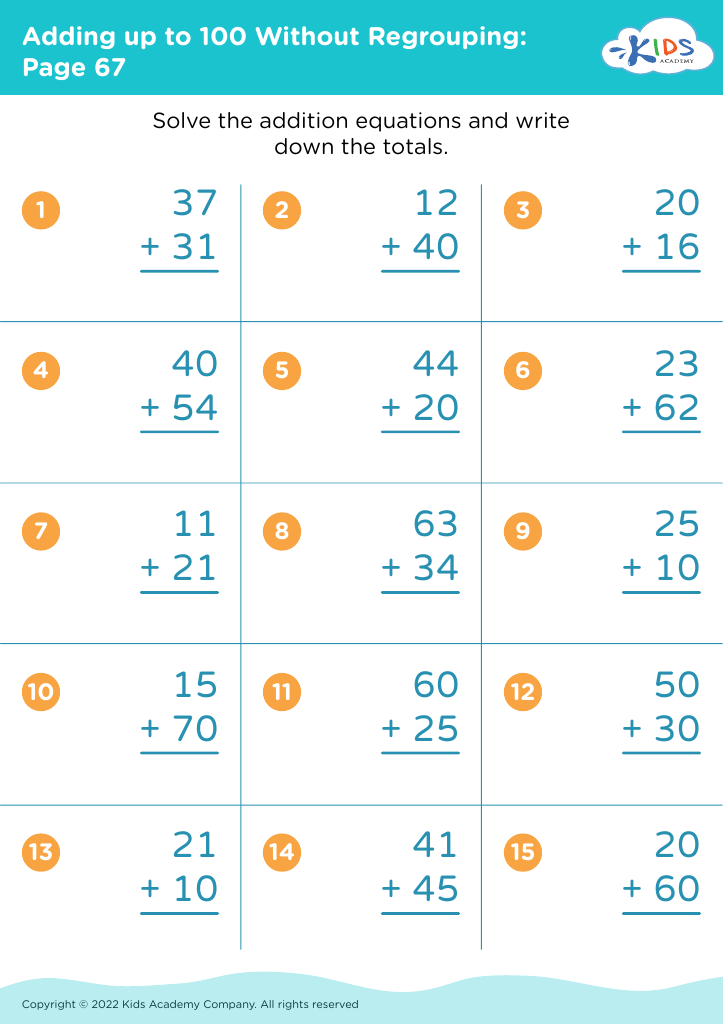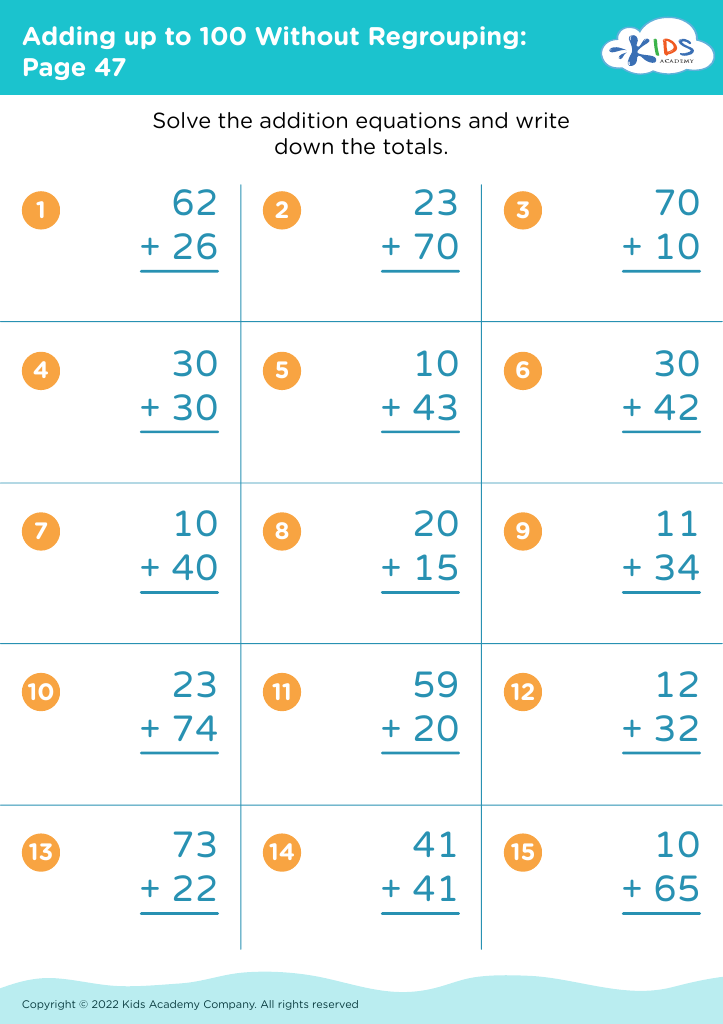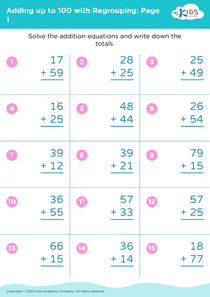Number Recognition Adding up to 100 Without Regrouping Worksheets for Ages 6-8
8 filtered results
-
From - To
Boost your child's number recognition skills with our engaging "Number Recognition Adding up to 100 Without Regrouping Worksheets" tailored for ages 6-8! These worksheets are designed to enhance basic math abilities while focusing on addition skills up to 100, all without the need for regrouping. Fun and colorful, they provide a stimulating learning experience that helps young learners build confidence in their numerical understanding. Each worksheet promotes practice in recognizing numbers and performing simple addition problems, making math enjoyable and effective. Perfect for homeschoolers or supplementary practice in the classroom, these resources are an invaluable tool for young mathematicians!
Number recognition and addition skills are foundational for children aged 6-8, laying the groundwork for their mathematical understanding and overall academic success. Recognizing numbers and mastering addition without regrouping up to 100 helps children develop fluency in basic arithmetic, which is crucial for more complex math concepts they will encounter as they progress in school.
For parents and teachers, caring about these skills is essential for enhancing critical thinking and problem-solving abilities in children. When children can quickly identify numbers and accurately add them, they build confidence in their math abilities. This confidence encourages a positive attitude towards learning, promoting participation in classroom activities and engaging in more challenging problems later on.
Additionally, strong number recognition and addition skills contribute to practical life skills, such as budgeting, shopping, and time management. Parents and educators can use everyday situations to reinforce these concepts, making learning relevant and enjoyable. By prioritizing number recognition and addition without regrouping, they set children up for mathematical success and empower them to approach future math topics with competence and resilience. Developing these skills in early education ultimately supports long-term academic achievement and a lifelong appreciation for math.




















